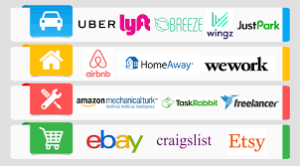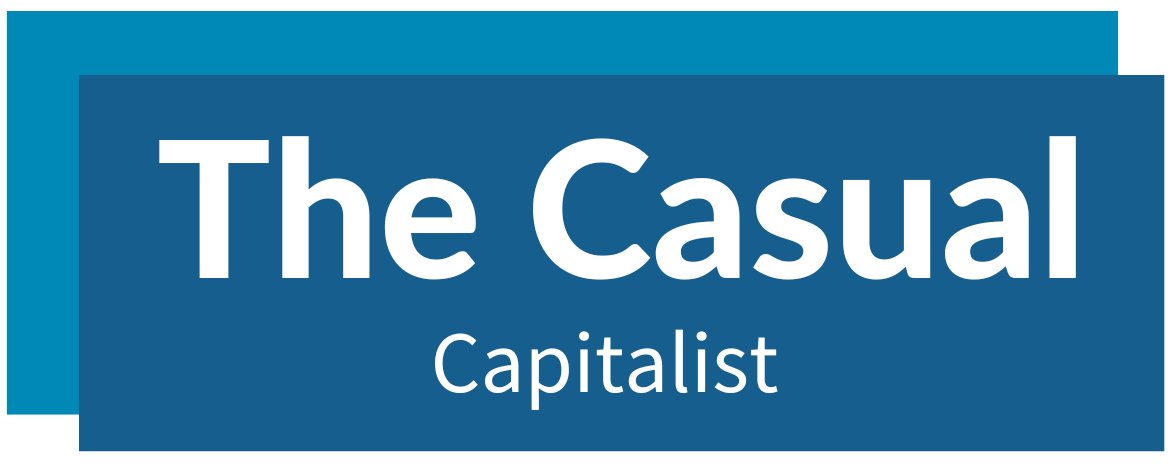What is the Sharing Economy?

I try not to engage with belligerents on Twitter, but I had to respond to Mr. B’s comment:
“Glenn, clearly you missed the truth about apploitation. The sharing economy isn’t sharing, it’s skirting labor laws and human rights.”
*Glenn scrambles to find a definition for apploitation*
“I’m not sure how people choosing to earn money from what they own is a human rights violation,” I respond, still not sure what apploitation means, or if it’s even a word.
Mr. B continues, I’ve given him a soapbox, and that was a mistake.
“Choosing, that’s cute. Ya, people always choose shitty jobs that exploit them because they grow up dreaming of it.”
Feeling like we have struck on a larger issue, and not wishing to engage in a debate about Marxism, I choose to let it go. We will revisit Mr. B at the end of this article, please stick around.
Clearly this is a tricky question to answer. There are so many misconceptions and media attention, both good and bad, surrounding the sharing economy. It’s easy to get distracted.
Our philosophy at the Casual Capitalist has always been that the sharing economy is here to stay. There are certainly growing pains, and this is good. But, in the meantime, we plan on profiting and showing you how to do the same.
What Is The Sharing Economy?
The sharing economy has many synonyms: circular economy, sharing marketplaces, freelance economy, collaborative consumption, access economy, collaborative economy, and the list goes on and on.
We personally prefer the term access economy, as it’s more accurate. But, we as society have chosen to term this economic shift the sharing economy, so let’s not deviate from the consensus.
According to the official Casual Capitalist dictionary, the sharing economy is “the entirety of hundreds of online platforms that enable people to turn otherwise unproductive assets into income-producing ones.” These assets include homes, cars, parking spots, clothes, consumer items, hobbies, and much more.
The sharing economy is about finding value in wasted or underused capacity.
So Uber, Airbnb, TaskRabbit, and hundreds of others, are all sharing economy platforms. We’ve touched on a number of others here including meal-sharing, delivering goods, pet-sitting, and more.
We canvassed smarter people than Glenn and friends of the Casual Capitalist to see how they define the sharing economy.
The sharing economy means empowerment for a large number of people who can earn additional income from assets they already own; take control of their own work schedule and income; and do what’s best for their family budget and situation. It’s about using technology in the best possible way, to create convenience and choice for consumers; democratize goods and services; and break down old clubs and old ways of thinking. As a legislator, it means asking myself why we should interfere, instead of asking why we should allow it to happen and trusting consumers, as adults, to be able to make choices for themselves. – Tim Hudak, MPP, Niagara West – Glanbrook
Making better use of what we already have as individuals as opposed to companies building more of what we don’t need. – Tim Wootton, Co-Founder Rover Parking
To me, the sharing economy is the product of leveraging unused assets (home/vehicle) and, in WeGoLook’s instance, the spare or idle time of our community of contingent independent contractors. – Robin Smith, CEO WeGoLook
Brought on by Millennials, the early success of the sharing economy represents a massive paradigm shift in the way that people work, live, and consume. The sharing economy is here to stay; soon it will just be called the economy. – Andrew Carlone, CEO Coral Life
Marketplaces that create more efficient resource allocation and more affective social value. – Grant Brigden, Co-Founder Rover Parking
As a vote of confidence, Merriam-Webster added “sharing economy” to their online edition.
Sharing Economy (Noun): economic activity that involves individuals buying or selling usually temporary access to goods or services, especially as arranged through an online company or organization.
Now, these companies are websites that act as intermediaries between consumers. For instance, Airbnb’s business revolves around linking up travelers with owners who can engage in a transaction for short-term access to real estate.
What we have argued at the Casual Capitalist is that the sharing economy is the fundamental shift between the scarcity principle to one of abundance. That is, how can we capitalize on the abundance of the consumer generation?
The old mentality of excess consumption is now moving more to access consumption. Instead of owning a car, you can use one only when needed. Instead of owning a thousand consumer or retail items, you can rent them from others. Instead of paying for a taxi or hotel, you can leverage the excess of others. This new business model is not about sharing, it’s about access.
And business is booming.
The Value Of The Sharing Economy
According to PricewaterhouseCoopers (PWC), the estimated value of the sharing economy sector by 2025 is $335 billion. That same number for 2013 was $15 billion. So, in just over 10 years, PWC predicts that the value of the sharing economy will increase by $320 billion.
As of 2015, Airbnb is already valued at $30 billion, which is almost as much as Hilton. Uber is currently valued at over $40 billion, larger than Delta Airlines, FedEx, or even Viacom.
This is why people are paying attention. So what does this mean for you? According to numerous economic studies, the sharing economy pays out millions of dollars every day to people just like you.
As the sharing economy becomes a new economic space and companies begin to thrive, fold or consolidate, the Casual Capitalist plan is for you to capitalize.
The Huffington Post recently noted that the sharing economy, or what it terms the circular economy, is “a digital revolution as much as a sustainable one. It is at the heart of the Fourth Industrial revolution. The beauty of the circular economy is that it delivers clear benefits for the environment while simultaneously driving entirely new revenues and business models.”
How Prevalent Is The Sharing Economy?
Very. And it’s only going to grow.
Airbnb currently has over 2 million listings. The biggest hotel chain in the world, Marriot which just merged with Starwood, has a total of 1.1 million rooms.
Further, a recent study released and reported in TIME Magazine reports that 45 million American adults have worked in the sharing economy. This is 1 in 5 American adults.
According to the same study approximately 86 million Americans have used sharing economy services. This is 2 in 5 American adults. Of these, 86% say that the sharing economy makes their lives more affordable.
The sharing economy is indeed making people’s lives easier, and more affordable.
Is The Sharing Economy A Fad?
No. The above statistics indicate that the sharing economy is not a fad. It’s clearly here to stay (sorry taxi’s!).
Important socio-demographic factors support the sharing economy. That is:
Legitimate Regulatory and Liability Concerns
Now, there are legitimate concerns with the sharing economy. These include consumer safety, insurance liability, and government regulation. These are all very worthwhile discussions that are ongoing. But I am not talking about these opponents, or concerned citizens.
But the lobbyists and obstructionists do not fall into this category, they know who they are. Mr. B and the taxi lobbyists, I’m looking at you. These people are like the horse and buggy lobby protesting Ford’s model T, or candlestick makers mad at Edison for inventing the lightbulb. The sharing economy is innovation, and those who oppose it are on the wrong side of history.
In a society where people are craving more and more flexibility, the sharing economy isn’t going anywhere.
In a few years, we’ll no longer discuss the merits or dangers of the sharing economy. It will simply be a fact of life. Like online shopping in the early 2000’s, which wasn’t welcomed with open arms. Or, as Andrew Carlone says above: “soon it will just be called the economy.”
If only Mr. B could chat with the literally millions of sharing economy workers who are gaining extra income and flexibility. He would quickly realize that the sharing economy, or whatever you want to call it, is a seismic accomplishment, or appcomplishment. See, I can make up words too.
Happy sharing everyone!
The Casual Capitalist
